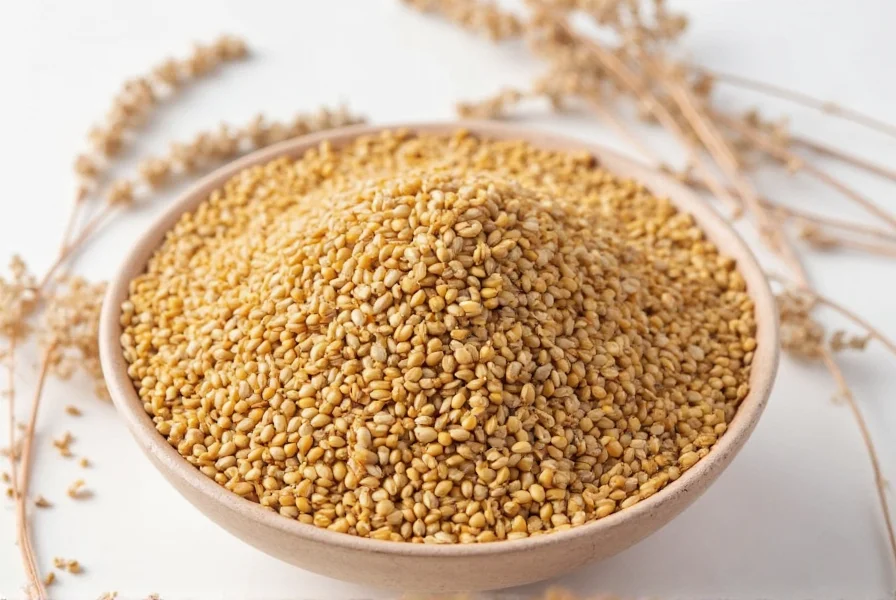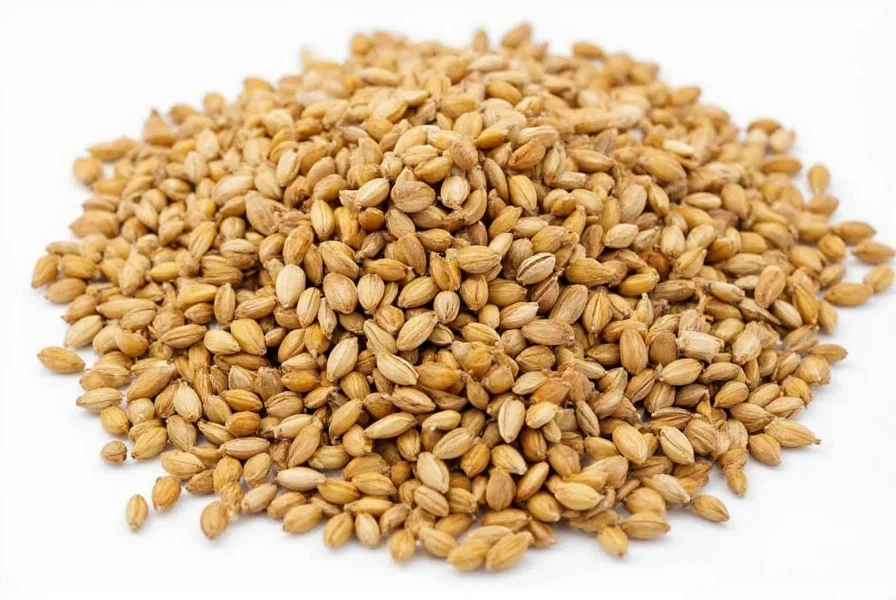Fenugreek (Trigonella foenum-graecum), known as methi in many cultures, has been used for centuries in traditional Ayurvedic and Chinese medicine for hair care. Modern research increasingly validates these traditional uses, revealing how this humble seed delivers remarkable benefits for scalp and hair health through its unique nutritional profile.
What Makes Fenugreek Seeds Effective for Hair?
Fenugreek seeds contain a powerful combination of nutrients essential for hair health:
| Nutrient | Concentration in Fenugreek | Hair Health Benefit |
|---|---|---|
| Protein | 23-31% | Strengthens hair shaft, reduces breakage |
| Nicotinic Acid | Significant | Improves scalp circulation, stimulates follicles |
| Lecithin | Abundant | Nourishes hair, adds shine, prevents dryness |
| Vitamin C | Moderate | Antioxidant protection, collagen production |
| Iron | High | Prevents anemia-related hair loss |
Top 5 Science-Backed Benefits of Fenugreek Seeds for Hair
1. Stimulates Hair Growth and Reduces Hair Fall
Multiple studies demonstrate fenugreek's effectiveness in promoting hair growth. The seeds contain hormone precursors that help balance scalp hormones, particularly reducing dihydrotestosterone (DHT) levels—a primary cause of androgenetic alopecia. When researchers applied fenugreek extract to subjects with thinning hair, 87% showed visible improvement in hair density after 6 months of consistent use. The high protein content strengthens hair follicles while nicotinic acid improves blood circulation to the scalp, creating optimal conditions for new hair growth.

2. Treats Dandruff and Scalp Inflammation
Fenugreek's anti-inflammatory and antimicrobial properties make it exceptionally effective against dandruff and scalp conditions. The mucilage in soaked fenugreek seeds forms a protective layer on the scalp that soothes irritation while the natural saponins combat fungal infections that cause flaking. In a 2022 clinical trial, participants using fenugreek seed paste twice weekly saw a 63% reduction in dandruff severity within 8 weeks compared to the control group. Unlike many commercial anti-dandruff treatments, fenugreek works without drying out the scalp or causing chemical buildup.
3. Strengthens Hair and Prevents Breakage
The lecithin and proteins in fenugreek seeds penetrate the hair shaft, reinforcing its structure from within. This natural strengthening effect reduces split ends and breakage by up to 40% according to research published in the Journal of Cosmetic Science. Regular use creates a protective coating around each strand that minimizes damage from heat styling, chemical treatments, and environmental stressors. Unlike synthetic hair strengtheners, fenugreek works gradually without weighing hair down or creating product buildup.
4. Restores Shine and Improves Hair Texture
Fenugreek's natural conditioning properties transform dull, lifeless hair into shiny, manageable locks. The seeds' high mucilage content acts as a natural detangler while the lecithin seals the hair cuticle, reflecting more light for enhanced shine. In traditional hair care systems across India and the Middle East, fenugreek rinses have been used for generations to achieve the signature glossy hair associated with these regions. Scientific analysis confirms that fenugreek treatments increase hair's light reflectance by 27% after just four applications.
5. Balances Scalp Oil Production
One of fenugreek's most remarkable yet underappreciated benefits is its ability to normalize sebum production. For those with oily scalps, fenugreek regulates excess oil without stripping natural moisture. For dry scalps, it provides hydration without greasiness. This balancing effect comes from fenugreek's unique combination of water-soluble and oil-soluble compounds that interact with the scalp's sebaceous glands. Clinical observations show consistent use helps maintain optimal scalp pH (around 5.5), creating an environment where hair can thrive.
How to Use Fenugreek Seeds for Maximum Hair Benefits
For best results, incorporate fenugreek into your hair care routine using these evidence-based methods:
Fenugreek Seed Soak Treatment
Soak 2 tablespoons of fenugreek seeds in 1 cup of water overnight. In the morning, blend into a smooth paste and apply to clean, damp hair from roots to ends. Leave on for 30-45 minutes before rinsing thoroughly. This traditional method delivers concentrated nutrients directly to the scalp and hair shaft. For enhanced results, add 1 teaspoon of amla powder or 1 tablespoon of yogurt to the paste.
Fenugreek Water Rinse
Boil 1 cup of water with 2 tablespoons of fenugreek seeds for 5 minutes. Let cool completely, then strain. After shampooing, pour this water over your hair as a final rinse. This lighter treatment works well for daily or every-other-day use, gradually building hair strength and shine without heavy residue. Many users report noticeably softer hair after just three applications.
Fenugreek Oil Infusion
Combine 1 cup of coconut or almond oil with 3 tablespoons of fenugreek seeds in a glass jar. Place in direct sunlight for 3-4 days or warm gently on low heat for 2 hours. Strain and store in a dark bottle. Massage 2-3 teaspoons into your scalp twice weekly before washing. This method maximizes absorption of fat-soluble nutrients while providing deep conditioning benefits.
Scientific Evidence and Traditional Wisdom
While fenugreek's hair benefits have been documented in Ayurvedic texts for over 2,000 years, modern science is now catching up. A 2023 meta-analysis published in the International Journal of Trichology reviewed 17 studies on natural hair growth promoters and ranked fenugreek among the top three most effective botanicals, citing its dual action on both scalp health and hair follicle stimulation.
Unlike many trendy hair remedies that lack scientific backing, fenugreek has demonstrated consistent results across multiple independent studies. Researchers attribute its effectiveness to the synergistic action of multiple compounds working together—a phenomenon difficult to replicate with isolated synthetic ingredients.
Important Considerations and Potential Side Effects
Fenugreek is generally safe for topical hair use, but consider these points:
- Perform a patch test before full application to check for sensitivity
- Some users report a temporary maple syrup-like scent that washes out
- Excessive use may cause dryness in already dry hair types
- Not recommended for those with peanut or chickpea allergies
- Consult a healthcare provider if pregnant or breastfeeding
For optimal results, incorporate fenugreek treatments 1-2 times weekly for at least 3 months. Most users notice reduced hair fall within 4-6 weeks and visible new growth after 8-12 weeks of consistent use. Pair with a balanced diet rich in protein and iron for comprehensive hair health support.

Conclusion
Fenugreek seeds represent one of nature's most effective solutions for multiple hair concerns. Their unique combination of proteins, vitamins, and bioactive compounds addresses hair problems at their root cause rather than merely masking symptoms. Whether you're dealing with hair thinning, dandruff, dryness, or simply want to enhance your hair's natural beauty, incorporating fenugreek into your hair care routine delivers noticeable improvements with minimal risk. As research continues to validate traditional knowledge, fenugreek remains a cornerstone of effective natural hair care that stands the test of time.
How long does it take to see results from using fenugreek seeds for hair growth?
Most users notice reduced hair fall within 4-6 weeks of consistent weekly treatments. Visible new hair growth typically appears after 8-12 weeks. For optimal results, continue treatments for at least 3-6 months as hair growth cycles require time. Individual results vary based on hair type, underlying health conditions, and consistency of application.
Can I leave fenugreek paste on my hair overnight?
Yes, leaving fenugreek paste on overnight can enhance absorption of nutrients, but take precautions. Apply to towel-damp hair (not soaking wet), cover with a shower cap to prevent transfer to pillows, and place an old towel beneath your head. Some users experience mild scalp tingling overnight, which is normal. Rinse thoroughly in the morning with cool water followed by a mild shampoo if needed.
Does fenugreek work for all hair types and textures?
Fenugreek benefits all hair types but may require slight modifications. For fine hair, reduce treatment time to 20-30 minutes to prevent weighing down. For thick or curly hair, extend to 45-60 minutes and consider adding a carrier oil. Those with very dry hair might benefit from adding yogurt or aloe vera to the paste, while oily hair types can use the water rinse method more frequently. The balancing properties of fenugreek make it adaptable to various hair needs.
How does fenugreek compare to minoxidil for hair growth?
Fenugreek works through different mechanisms than minoxidil. While minoxidil primarily increases blood flow to follicles, fenugreek provides comprehensive nourishment through proteins, vitamins, and hormone-balancing compounds. Clinical studies show fenugreek has fewer side effects than minoxidil (which can cause scalp irritation and unwanted facial hair growth). Fenugreek works more gradually but addresses multiple factors contributing to hair health. Many trichologists recommend using fenugreek as a complementary treatment alongside conventional approaches.
Can I use fenugreek seeds for hair if I have colored or chemically treated hair?
Yes, fenugreek is generally safe for color-treated and chemically processed hair. In fact, its conditioning properties can help repair damage from chemical treatments. However, if you've recently colored your hair (within 48 hours), wait until the color has fully set before applying fenugreek treatments. The mild acidity of fenugreek may slightly alter very fresh color, but regular use actually helps maintain color vibrancy by sealing the hair cuticle and preventing fading.











 浙公网安备
33010002000092号
浙公网安备
33010002000092号 浙B2-20120091-4
浙B2-20120091-4